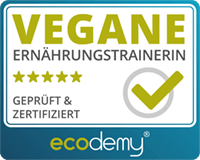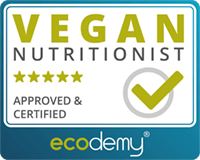Discovering a plant-based lifestyle for a better lifestyle
Most of the world has access to over 20,000 edible plants, yet the majority still consumes meat on a worryingly regular basis.
According to the Food and Agriculture Organization (FAO) of the United Nations, Europeans consume an average of 57.6 kg of meat per person annually. That’s more than my body weight! Imagine that…
More specifically, countries like Austria, Denmark, and Luxembourg consume the most meat, with over 70 kg per person annually. As an Austrian myself, this is shocking.
Other countries, like Italy and Greece, consume significantly less, with only 28.7 kg and 37.2 kg of meat per person, respectively.
Note: No animal-derived food has a monopoly on nutrients. Protein, iron, calcium, and Vitamin D are found in various plant-based sources.

Visit activeplantbased for professional help and plant-based nutrition training.
Transitioning to a plant-based diet should be considered to improve our health, reduce our environmental impact as much as we can, and help alleviate global hunger and poverty.
If you’ve already decided to limit or eliminate meat from your diet, I’m happy for you.
If you haven’t, I encourage you to start by reading the health benefits of plant-based eating below and get some inspiration on the different ways to cook meat-and-dairy free. Some of these thoughts might challenge you, and that’s okay. Otherwise, you might never learn anything new.
Health benefits of balanced plant-based eating
- Supports and strengthens your immune system. The antioxidants, vitamins, minerals, and phytochemicals found in fruit and vegetables benefit your body’s immune system and overall health.
- Enhances your heart health. A diet rich in fruit, veggies, legumes and whole grains can help reduce bad cholesterol levels, lower blood pressure, and reduce inflammation, all of which can help protect your heart. A plant-based diet is naturally low in saturated fats, which are associated with an increased risk for cardiovascular disease.
- Helps you maintain or lose weight easier. Vegetables and fruit are naturally low in calories and high in fibre, which can help you feel fuller longer. Plant-based foods are also typically less processed than animal products, so they contain fewer added sugars and unhealthy fats. Eating a balanced plant-based diet can help regulate your blood sugar levels, making weight management more efficient. It can be easier to conduct and follow a meal plan based on a plant-based diet.
- Plant-based protein promotes longevity. Getting enough protein is crucial both for plant-based and meat-eaters. Plant protein, though, has been proven to be of better quality (not to be confused with the term protein quality), reducing the risk of developing cardiovascular disease, which in turn can add years to your life.
- Has proven to minimise the risk of various other diseases like diabetes and certain types of cancer. Eating a plant-based diet has been linked to lower blood sugar levels and improved insulin sensitivity, both of which are important for managing diabetes. Studies have found that a diet rich in fruits, vegetables, whole grains, and legumes can help improve glycemic control and reduce the risk of complications from diabetes. Eating a plant-based diet may also reduce inflammation, which is associated with type 2 diabetes.
- Helps protect against cognitive decline. The vitamins and antioxidants, as well as essential fatty acids, help boost brain health and protect against age-related cognitive decline. Plant-based diets are also often lower in unhealthy fats and processed foods, which have been linked to an increased risk of cognitive decline.
Note that all the above correlate to a well-balanced plant-based diet. So if you’re not willing to cut out meat from your diet, try to include whole plant-based foods.
How do I achieve balance in a plant-based diet?
When you think of a balanced diet, consider variety, colour and moderation.
It should consist of various whole-plant foods such as fruits, vegetables, whole grains, beans, nuts & seeds.
Here are some general tips to have in mind;
- What I have learned is eating the rainbow, meaning eating a variety of colours when it comes to fruit and vegetables. If you cannot decide which veggie to add to your eggplant dish, just add something with a different colour, e.g. bell pepper and white rice.
- Make sure you do not miss out on dark leafy greens and high-fibre foods.
- Try to limit your intake of processed and refined food.
- Consume adequate amounts of healthy fats like avocado, nuts, seeds, olives and olive oil instead of refined and hardened oils.
- Consider consulting a nutritionist for professional health if you are unsure about how to sustain yourself on a vegan diet.
Guide on plant-based grocery shopping for beginners
Shopping at the supermarket can be overwhelming, so here are some of the most important plant-based foods you should stock up on and make sure you are not missing out on all the amazing and nutritious options available at the supermarket.
- Fruits and veggies; Select a variety of firm, plump produce that is free from blemishes and bruising unless you want to save the ones that are bruised and blemished. Make sure you consume them first. Do not buy anything that has mould on it, as cutting away the mouldy part does not make the spores go away. If a fruit or veggie has mould, throw away the whole of it, as it poses a health hazard.
- When possible, buy seasonal produce for the best flavour and nutrition, as well as organic produce, to reduce exposure to toxins.
- Bulk purchases can save money and provide more options, and locally-sourced produce helps support local farmers.
- Whole grains and starchy veggies; Oats, wild rice, quinoa, sweet potatoes, butternut squash, corn…
- Healthy (or healthier) fats; Olive and sesame oil, olives, avocado, nuts and seeds, nut butter, coconut products
- Plant-based milk alternatives: Like almond milk or cashew milk are possibly the best-unsaturated fats you can receive from plant-based eating.
- Unsweetened plant-based milk; Coconut milk, almond milk, cashew milk, etc. It’s a must, especially if you enjoy cooking and baking. It can be used as a substitute for dairy milk. Plant-based yoghurt of all types is also a great protein and vitamin-rich staple to keep in your fridge.
- Legumes; Red kidney beans, black beans, chickpeas, lentils…
You can have a look at my recipe on how to make your own plant-based milk at home here.
- Herbs and spices; anything that you like is, in fact, a good option. My favourite ones are rosemary, basil, curry powder, smoked paprika, and cayenne pepper. You can add them to any dish you like for extra flavour and even experiment with them in baking.
- Plant-based protein; tempeh, tofu, beans, chickpeas, quinoa, oats…
Plant-based or vegan doesn’t automatically mean healthy
When you hear people talk about a plant-based diet, they are not referring to;
- Fried food every day, as long as it is plant-based
- Frequent consumption of processed meat and dairy substitutes, as long as they are vegan
- High consumption of refined sugars, as long as these products do not contain animal-derived ingredients
You are, of course, free to opt for whatever food adds to your health and happiness, and I by no means suggest that you should cut the above off your diet once and for all. Satisfying our psychological needs is also very important.
To conclude, plant-based foods are an ideal way to nourish your body and help protect against a number of serious health conditions. They are rich in vitamins, minerals, fibre, antioxidants, phytochemicals and essential healthy fats. Eating a variety of whole-plant foods can provide your body with the necessary nutrients to stay healthy and energised. Again: No animal-derived food has a monopoly on nutrients. You can find protein, iron, calcium and Vitamin D in a variety of plant-based sources.
With the abundance of delicious, nutritious plant-based ingredients available, it’s never been easier to take positive steps toward a healthier lifestyle and less animal suffering.
Thank you for reading and supporting our love of writing.
─ the activeplantbased pub 🐇

